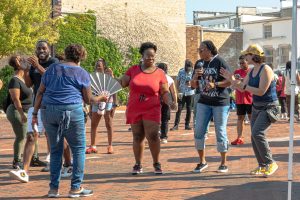Black Nationalist leaders discussed
April 27, 1990
The history of the Black Nationalist movement can be traced through the work of Marcus Garvey, Malcolm X and Martin Luther King.
Lou Turner, a columnist from News and Letters, a Marxist-Humanist newspaper, spoke to a crowd of 20 people in the Holmes Student Center Thursday about the leaders’ work and significance to the Black Nationalist movement.
“These are the three most significant figures in the century of the color-line confrontation,” Turner said,in reference to Garvey, King and Malcolm X.
He said Garvey was important because of his unique ability to organize a mass movement. Turner said Garvey made the Black Nationalist movement a global one.
Garvey was the founder of the “Back to Africa” movement in the late 1920s and that the movement has seen steady growth since that time, he said.
“The organizational capacity of Garvey was mammoth,” Turner said.
He said “growth and development through struggle characterizes the quintessential Matin Luther King line of thinking.”
The “collision of forces” and confronting “the powers that be” were the methods King used to achieve so much during the Civil Rights struggle of the ‘60s, Turner said.
“He (King) was not a leader who told people what to do, but instead learned from them how to lead,” he said.
Malcolm X was “very distinctive” because, unlike other black leaders, he asked for a “critique of the black nationalist movement and its leaders as well as the power structure,” Turner said.
“Malcolm was the first one to realize that critiquing a system means critiquing yourself as well because you’re part of the system,” he said.






